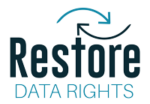Aggregated data and metadata are open to the public
“The Ministry of Health publishes daily Covid-19 related aggregate statistics on its website and on various social media platforms. This information includes the reported number of Covid-19 tests conducted each day; the reported number of confirmed Covid-19 positive cases; the reported number of persons who test positive for Covid-19 who are foreigners, males and females, the minimum and maximum age of persons who reportedly tested positive for Covid-19 on that particular day; the number of persons who have reportedly recovered from Covid-19; the number of persons who have died from Covid-19; the number of patients who have been admitted nationally to health facilities; the number of patients who are on home based isolation case; the number of patients on ventilatory support; and the number of patients on supplemental oxygen. The aggregate number of new Covid-19 cases is also reported for each Kenyan County.
In terms of the Ministry of Health’s Guidelines for Submission of Covid-19 Testing Data to the National Data Compilation Centre, testing laboratories are required to submit daily aggregate test results using an online platform operated by the to the National Public Health Laboratories. The Targeted Testing Strategy for Corona Virus Disease 2019 (Covid-19) in Kenya requires that all test results, whether positive or negative, should be reported to the head of the National Public Health Laboratories using the prescribed submission template as per the laboratory testing algorithm. Automated reporting systems must also be used by laboratories when they become available. A technical team then verifies the results, which are then reported by the head of the National Public Health Laboratories to the Director General of Health, who then reports to the Cabinet Secretary of Health. “
Information on what entities are collecting data, from what communities and for what purposes are made available to the public
“The Kenyan government has stated that it has been tracking mobile phones of people suspected to have Covid-19 as a way of enforcing the prescribed mandatory isolation period. In this regard, Section 52 of the Computer Misuse and Cybercrimes Act 5 of 2018 governs the real-time collection of data by police officers or authorised persons when there are reasonable grounds to believe that such data is required for the purposes of a specific criminal investigation, including a contravention of the Covid-19 related laws. Such persons may compel a service provider, within its existing technical capability, to collect or record through application of technical means traffic data in real time or cooperate and assist a police officer or an authorised person in the collection or recording of traffic data, in real-time, associated with specified communications in its jurisdiction transmitted by means of a computer system.
Under the Data Protection Act 24 of 2019, personal data relating to a person’s health status is also classified as sensitive personal data. Section 46 of the Act provides that such data may only be processed by or under the responsibility of a healthcare provider or by a person subject to the obligations of professional secrecy under any law. The processing of the data must be necessary for reasons of public interest in the area of public health or be carried out by a person who, in the circumstances, owes a legal duty of confidentiality. All personal data may only be collected for explicit, specified and legitimate purposes and must also be processed lawfully, fairly and in a transparent manner in relation to any data subject.
According to the draft guidance note issued by the Office of the Data Protection Commissioner regarding Covid-19, responsible parties must collect personal information of an individual for a specific purpose, which in this context is to detect, contain and prevent the spread of COVID19. Any personal Data that requested must also only be that which is adequate, relevant and limited to what is necessary in relation to the purpose for which it is requested. Personal data shall not be kept for longer periods than is necessary to achieve the purpose for which it was collected and processed, and the data must thereafter be destroyed. The person responsible shall ensure that the personal data is de-identifiable. Personal data must be processed securely to retain confidentiality and integrity in consistency, accuracy, and trustworthiness over its entire life cycle. Any person who has access to personal data shall be responsible for its protection and must demonstrate that they have put in place proactive mechanism to appropriately safeguard the personal data.
The Public Health (Prevention, Control and Suppression of COVID-19) Rules, 2020 further oblige every owner, occupier of premises, and head of a household, who suspects that any person who is residing at his or her premises is suffering from COVID-19, to notify a medical officer, public health officer or medical practitioner or take that person to a health facility for treatment. Employers are also required to notify a medical officer, public health officer, a medical practitioner or the nearest administrator of any employee suffering from COVID-19.
Motivated in part by the need to facilitate remote learning and work, the President of Kenya has also approved Google Loon services to enable universal 4G data coverage. The Kenya Civil Aviation Authority has signed an agreement with Google Loon that allows Loon Balloons to fly over Kenyan airspace.
The World Bank, in collaboration with the Kenya National Bureau of Statistics and the University of California Berkeley, is also conducting the Kenya COVID-19 Rapid Response Phone Survey to track the socioeconomic impacts of the COVID-19 pandemic and provide timely data to inform a targeted response.
Kenya has also implemented an online system to authenticate and verify laboratory test certificates for travellers. The system is based on the Africa CDC Trusted Travel platform which was developed by PanaBIOS Consortium and Econet Group as a public-private partnership. Travellers may upload their COVID-19 test results online using the system for verification by port health and travel officials.”
